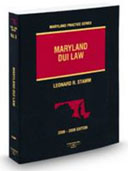The U.S. Supreme Court held oral argument yesterday in the case of Navarette v. California. This case presents the important issue of when police can stop a car based on an anonymous tip without corroborating the details provided by the caller. An anonymous caller informed police that Navarette’s vehicle was driving recklessly and almost ran them off the road. The caller provided a description of the vehicle. Police spotted the vehicle 19 miles down the road and followed for another 5 miles without seeing any bad driving. Ultimately, the vehicle was stopped and police found marijuana. Under the Fourth Amendment exclusionary rule, if the stop was illegal, the marijuana must be suppressed. That means the trial court couldn’t consider it and Navarette would get off.
During the argument the justices peppered the lawyers with hypotheticals designed to flesh about where and what lines the Court should draw. What if it was a report of a bomb? An atom bomb? A gun? The Court had held in a gun case, Florida v. J.L., an anonymous report of a juvenile in a plaid shirt carrying a gun was insufficient.
The general rule is that police may stop a person if they have an articulable reasonable suspicion to believe the person was, is, or is about to commit a crime. But a very important factor may have been overlooked by the justices and the lawyer arguing the case.
MR. KLEVEN: Right. If they can’t see any erratic driving still going on, then where is it going to go? They’re not going to prosecute for the recklessdriving that allegedly took place 19 miles away and they have followed that car for an additional -
JUSTICE SCALIA: They could if the guy admitted it, you know.
MR. KLEVEN: Other than that, Your Honor -
JUSTICE SCALIA: They could play Mutt and Jeff with him and he — oh, yeah, I did, yes.
The fallacy here is that if the caller is anonymous, even if the defendant admits the conduct, he cannot be prosecuted for it. The corpus delicti rule in criminal law requires that there must be corroboration of the corpus delicti to prosecute a defendant. “Corpus delicti” is a Latin phrase that very loosely translated means the body of the crime. A person cannot be convicted of a crime based solely on a statement admitting guilt. There must be some independent evidence that in fact a crime was committed. In the case of an anonymous report of a past crime such as a minor traffic violation, without any witness to come forward and testify under oath that he observed the defendant commit a crime, the defendant can’t be prosecuted for it.
So why allow the stop?
A decision is expected later this year.
If you are facing criminal or traffic charges in Maryland state or
federal court, call Leonard R. Stamm of Goldstein
& Stamm, P.A. at 301-345-0122 for a free consultation.
Leonard R. Stamm
Goldstein & Stamm, P.A.
6301 Ivy Lane, Suite 504
Greenbelt, MD 20770
301-345-0122
(fax) 301-441-4652
www.dwiattorneymaryland.com
https://www.marylandduilawyer-blog.com
marylandduilaw@gmail.com
Author: West’s Maryland DUI Law

 Maryland DUI Lawyer Blog
Maryland DUI Lawyer Blog

